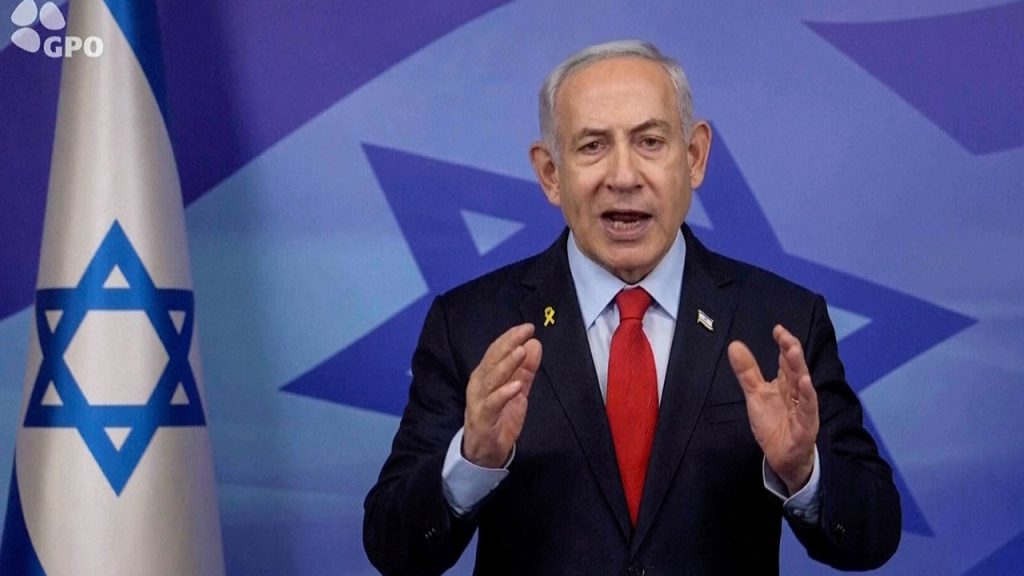Paragraph 1: Netanyahu’s Recent Prostate Surgery and Health History
Israeli Prime Minister Benjamin Netanyahu underwent surgery on Sunday to remove his prostate following a urinary tract infection stemming from a benign enlargement of the gland. His current condition remains undisclosed. This procedure marks the latest in a series of health challenges for the 75-year-old leader over the past two years. In March 2024, Netanyahu underwent hernia surgery under full anesthesia, temporarily transferring his duties to Deputy Prime Minister Yariv Levin. Just months before the October 7 attacks, in July 2023, he was hospitalized for dehydration after spending time at the Sea of Galilee without adequate water or sun protection during a heatwave. A week later, doctors implanted a pacemaker to regulate his heart rate and rhythm.
Paragraph 2: Netanyahu’s Ongoing Corruption Trial and Leadership Amidst Regional Conflict
Netanyahu’s recent surgery comes amidst ongoing legal proceedings and heightened regional tensions. He is currently testifying in a corruption case against him, having taken the stand in December and expected to continue his testimony in the new year. Simultaneously, Netanyahu is leading the Israel Defense Forces (IDF) in operations across the Middle East, targeting Iranian terrorists and their proxies. The IDF recently conducted multiple airstrikes against Houthi rebels in Yemen, hitting Sanaa International Airport and Houthi infrastructure in several ports. These combined challenges – health concerns, legal battles, and regional conflicts – underscore the demanding context within which Netanyahu continues to operate.
Paragraph 3: The Significance of Netanyahu’s Health in the Context of Israeli Politics
Netanyahu’s health status holds significant implications for Israeli politics and regional stability. As a dominant figure in Israeli politics for decades, his presence, or potential absence, significantly influences the political landscape. His recent health challenges raise questions about his long-term ability to maintain the demanding schedule of a prime minister, particularly given the ongoing security threats and political complexities facing Israel. The frequency of these health episodes could become a factor in future political calculations, potentially impacting public confidence and potentially influencing the dynamics within his own party and the broader political arena.
Paragraph 4: The IDF’s Recent Actions Against Houthi Rebels and Regional Implications
The IDF’s recent strikes against Houthi targets in Yemen highlight the ongoing regional tensions and Israel’s proactive stance against perceived threats. The targeting of Sanaa International Airport and key port infrastructure signifies a strategic effort to disrupt Houthi operations and limit their ability to project power. These actions are part of a broader Israeli strategy to counter Iranian influence in the region, viewing the Houthis as an Iranian proxy. The strikes also underscore the complex web of alliances and rivalries in the Middle East, with potential ramifications for regional stability and the ongoing conflict in Yemen.
Paragraph 5: Analysis of Netanyahu’s Leadership Style and Political Challenges
Netanyahu’s leadership has been marked by both strong support and intense opposition. His supporters admire his resolute stance on security issues and his ability to navigate complex geopolitical challenges. Critics, however, point to the ongoing corruption allegations and concerns about the direction of his policies. His current health challenges further complicate this already polarized environment, potentially impacting public perception and creating uncertainty about the future of his leadership. The confluence of health concerns, legal battles, and regional security threats creates a challenging political landscape for Netanyahu to navigate.
Paragraph 6: Potential Implications of Netanyahu’s Health and Legal Challenges for Israel’s Future
The uncertainties surrounding Netanyahu’s health and legal situation create potential implications for Israel’s political future. Should his health deteriorate or the legal proceedings lead to adverse outcomes, it could trigger political instability and potentially lead to new elections. Such scenarios could reshape the political landscape, potentially leading to shifts in power dynamics and policy priorities. The ongoing corruption trial, coupled with his health challenges, adds an element of unpredictability to Israeli politics and raises questions about the long-term stability of the current government. The coming months will likely be crucial in determining Netanyahu’s political future and the broader direction of Israeli politics.

